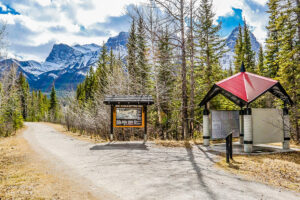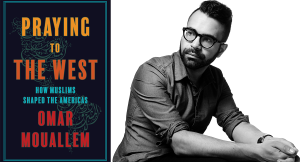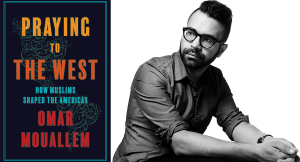
Travel
Trans Canada Trail celebrates 30 years of connecting Canadians
The trail started with a vision to link Canada coast to coast to coast. Now fully connected, it’s charting an ambitious course for the future.
- 1730 words
- 7 minutes
History

On Oct 8, 1971, then-Prime Minister Trudeau announced multiculturalism as an official government policy. On the 50th anniversary of the announcement, Canadian Geographic is publishing five essays that explore the theme. The series forms part of Commemorate Canada, a Canadian Heritage program to highlight significant Canadian anniversaries. It gives Canadian Geographic a chance to look at these points of history with a sometimes celebratory, sometimes critical, eye.
It is not lost on me that we are noting the anniversary of multiculturalism while many of my colleagues who are women of colour working in Canadian journalism have been receiving vile, horrific, racist letters threatening their lives and their safety. The letters, which have been shared online, make explicit reference to the ethnicities of the journalists and say they should go “home.” The letters also make reference to “traditional Canadian men.” The common thread between all the letters is the idea that the very existence of these women is a threat to a core notion of what is Canadian.
This is ugly. But this ugliness is a crucial dimension of Canadian multiculturalism — it is not accidental or even an aberration. Rather, it is a predictable, recurring reaction to the ways multiculturalism has become entwined with the Canadian identity over the past 50 years. Clearly, this makes some bristle.
Too often, our eagerness to overlook this ugliness leads to an incomplete picture of multiculturalism’s consequences.
It’s an often-forgotten facet of multiculturalism that its origins were somewhat awkward. When Pierre Trudeau announced the policy in 1971, there was no notable opposition in the House of Commons. What, exactly, was there to even oppose? Trudeau’s statment was received less as a policy and more as an articulation of an already-existing ethos: Canada was becoming more racially diverse, and the government announced that it would fight discrimination and promote tolerance. It was about as obvious as declaring oneself against cancer. Who would dare to come out in opposition?
But in the 50 years since Trudeau’s declaration, multiculturalism has graduated from policy-as-grand-gesture to something of a national identity pillar. We are a nation of hyphens, we tell ourselves. A nation of making room. This is a good story. I want to believe this story. But the repeated telling of it does not accurately betray the difficulty of making it come true, which is far more complicated, treacherous and at times dangerous.
It’s easy to drive 12 minutes in Toronto and find yourself crossing from Little India to Koreatown to Little Portugal, and to tell yourself a romantic story of Canada. In much of the rest of the country, it’s messier, and it takes a lot more work than that. It certainly did for me, growing up in Kingston, Ont., a town of some 150,000 people two hours east of Toronto. There, multiculturalism is less about romance and more about knotty negotiation.
The negotiation is between the idea and the practice of multiculturalism. The idea: when I first arrived in Canada at the age of 12 in 2000, speaking very little English, I was met with patient and encouraging teachers — teachers who asked a second, third, fourth time “how do you say your name?” and rehearsed until they got it right. They extended themselves, and went to great lengths to help me grasp concepts I struggled with. They made it their business to help me overcome the challenges of a new home.
Soon after, I met the flip side of the coin: the practice, which is laden with suspicion, racism and fear. On the first Friday prayers after September 11th, we pulled up to find two police cruisers parked in front of our local mosque. I was told they were there to protect us. As I joined the other teens at the mosque, none of us articulated the questions weighing on our minds: Protect us from what? What would happen if they weren’t here?
It’s hard to be romantic about multiculturalism when your existence necessitates a degree of risk assessment every day. This was as true for me in the mosque that day as it is for the women receiving an onslaught of threats now. All notions of romance are replaced with the exhausting work of threat evaluation. Am I safe? Am I vulnerable?
There is an intellectual danger in disguising the origins of multiculturalism as a policy, and evolving it to an idea or a national value. If we do so, we risk losing the well-meaning point: multiculturalism is less a noun, less a fixed thing in the sky, and more so a verb. We do multiculturalism, which means sometimes we do it well and sometimes we do it badly.
The times we do it well: we know immigrants to Canada succeed economically to a greater degree than they do in other nations. Times we do it badly: a political party might find it compelling to seize upon anti-immigrant sentiments and promise to launch a “barbaric cultural practices hotline.” Times we do it well: that party might fail on account of attempting such a policy. Times we do it badly: journalists who are not white are still getting harassed and bullied.
Multiculturalism, then, is not a load-bearing identity, but an orientation. On occasion, the country is more wholeheartedly turned towards it, and other times it is fractious to face in its direction. That binary, too, is limited: it’s partly built on the fantasy that Canada belongs to its white settlers and is “theirs” to share, a narrative that erases the existence of First Nations, Métis & Inuit peoples. But it’s in the very thrashing of all these ideas that a possible identity of Canada becomes coherent — we’re a young country, and we’re working towards an expansive definition of who we are.
By now, Canada has a robust history of making room, of contracting and expanding to contend with new arrivals. Canada is sometimes succeeding, often failing, but ever trying. If this sounds only positive, I do not mean it to be: we exalt the idea of the hyphen, unaware of its real costs. There are high prices to pay, like people’s safety and people’s sense of belonging.
If there is room for optimism, it is because I can’t think of another nation that would contend with this much elasticity, or tolerate this much tug of war over its national identity. Whether you think that’s worth celebrating depends on how much rope burn you have.
Are you passionate about Canadian geography?
You can support Canadian Geographic in 3 ways:

Travel
The trail started with a vision to link Canada coast to coast to coast. Now fully connected, it’s charting an ambitious course for the future.

History
Omar Mouallem, author of Praying to the West: How Muslims Shaped the Americas, looks at why an unshakeable faith in Canada’s multiculturalism project — common amongst the generation of Muslim immigrants who arrived in the ’70s — is not always shared by those who have migrated in the last 20 years, and is rarely felt by their children

Wildlife
Canada jays thrive in the cold. The life’s work of one biologist gives us clues as to how they’ll fare in a hotter world.

History
Omar Mouallem, auteur de Praying to the West : How Muslims Shaped the Americas (Prière vers l’Occident : comment les musulmans ont façonné les Amériques), examine pourquoi une foi inébranlable dans le projet de multiculturalisme canadien – commune à la génération d'immigrants musulmans arrivés dans les années 1970 – n'est pas toujours partagée par ceux qui ont migré au cours des 20 dernières années, et est rarement ressentie par leurs enfants